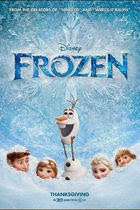Rated: UNRATED Violence, language and subject matter - all involving teens
Release Date: March 30, 2012
Runtime: 1 hr 39 mins
Release Date: March 30, 2012
Runtime: 1 hr 39 mins
Director: Lee Hirsch, Alicia Dwyer
Writers: Lee Hirsch, Cynthia Lowen
Cast: Alex Libby, Ja'Meya Jackson, Kelby Johnson, Kirk Smalley, David Long, Tina Long
Writers: Lee Hirsch, Cynthia Lowen
Cast: Alex Libby, Ja'Meya Jackson, Kelby Johnson, Kirk Smalley, David Long, Tina Long
SYNOPSIS: This year, over 13 million American kids will be bullied at school, online, on the bus, at home, through cell phones, and more. This is a documentary highlight the bullied plight of five children and their families, focusing on how it affects the kids themselves, their families, the school systems, and local authorities.
REVIEW: Directors Lee Hirsch (Act of Honor) and Alicia Dwyer (The Calling) tackle subject matter that runs rampant across the country and the world, not limited to geographic boundaries or age group. Bullying is as much a rite of passage as it is a never diminishing pandemic for the youth of America. Hirsch focuses on the stories of five families as a child and family struggles against a seemingly unstoppable pattern of abuse.
REVIEW: Directors Lee Hirsch (Act of Honor) and Alicia Dwyer (The Calling) tackle subject matter that runs rampant across the country and the world, not limited to geographic boundaries or age group. Bullying is as much a rite of passage as it is a never diminishing pandemic for the youth of America. Hirsch focuses on the stories of five families as a child and family struggles against a seemingly unstoppable pattern of abuse.
In the film, the cameras focus their lens on five families. Front and center is Alex Libby, who was born premature and who defied the odds by live thirteen years past the twenty four hours that the doctors predicted for him. Now in middle school, Alex peculiar appearance and quarks make him a physical target on the school bus and school yard for choking, pencil stabbings, slaps and more. Ja'Meya Jackson, a young excelling student and athlete, endures taunts and bards for a time before she decides to confront her bullies on the bus with a firearm. Kelby Johnson, a teenager, discovers her homosexuality, and watches as she and her family become shunned in their community. Two other children are never exposed to the camera during this documentary, as they considered suicide the only answer to the pain and hurt they were experiencing. Seventeen-year-old Tyler Long and eleven-year-old Ty Smalley never met each other, but they shared a first name, a pattern of bullying, and families that are forced to come to terms with the grief and loss of their children.
Lee Hirsch chose this documentary project, in part, became he stated he was a victim of childhood bullying. Focusing on the lack of communication between victims and their parents, and the lack of response to open communication between children, their parents, and the school system, and the secret lives that bullied children experience, Hirsch delves primarily into the lives of young Alex and Kelby to serve as the voices to the masses that they do not necessarily use to voice to their guardians. When asked about his day by his mother, Alex goes into a blank stare and shuts down communication. Kelby is able to dialogue with her parents, using them and a close group of friends to combat the oppressive nature of the abuse. When parents, armed with the footage of physical abuse, confront the vice principal at the school about incidents suffered on the bus route, they are rebuffed with empty apologies and promises to 'take care of it'. As Alex's parents know too well, 'taking care of it' typically results in inaction.
The documentary is mostly one-sided, as most documentaries are. Giving voice and perspective to the schools' principals, the local authorities, and school boards ends up with their actions and words coming out dispassionate, naive, or frustrated. The film does accept and point out that change can not be affected by an individual or civil service alone, but also points out that parents have an acceptable expectation that when their child leaves their home they will be in capable protective hands throughout the school day. The company lines of "...boys will be boys...", "...let them work it out for themselves...", "...they're fine..." may suffice for a time, but when a family is devastated by the senseless suicide of one of their children, grief - in some cases - turns into action.
Hirsch highlights a social dilemma that we have all suffered through in one way or another. We may have been bullied or picked on. We may have been the aggressor against the misfit, new kid, or strange case. Or we may have been the ones who stood idly by as these assaults happened around us. As adults, thinking back on the actions and in-actions of our youthful stupidity often comes as pangs of regret. We have that luxury for reminiscence. But as adults, the social engagements of our youth shape our lives. Even if we think that we are stronger persons for the various forgings in our formative years, a simple taunt can stir up old insecurities.
In a modern era that technologically reduces the planet to a Google search, a Skype session, or a cell call, bullying has not become a forgotten Luddite notion. While major metropolitan centers may have become more tolerant and accepting of what makes us 'us', there is still a large swathe of America that is "simple" and set in their traditional ways of growing up, perpetrating the legacy of bullying the weaker and different. Hirsch does focus primarily in the smaller towns and municipalities of Georgia, Iowa, Texas, Mississippi, and Oklahoma to drive home his point. Kelby Johnson's father even asks her whether she would rather move to a larger city where she would be more accepted, but she stands her ground to try and affect change in her hometown.
Bully has been in the spotlight for its controversial MPAA R-rating, and petitions by vocal film advocates and the Weinstein Co itself to push for a revised PG-13 rating, wishing for a change so that this film can be seen by those that are affected most by bullying. Failing a change in rating, the Weinstein Co. has protested and released the film as Not Rated. With some harsh language and depictions of bullying violence, Bully is a raw and real reminder of what is happening to some of our youth. The film should be seen by teenagers and parents alike, preferably together, so that a dialogue can be opened up - for the benefit and health of our next generations.
Lee Hirsch chose this documentary project, in part, became he stated he was a victim of childhood bullying. Focusing on the lack of communication between victims and their parents, and the lack of response to open communication between children, their parents, and the school system, and the secret lives that bullied children experience, Hirsch delves primarily into the lives of young Alex and Kelby to serve as the voices to the masses that they do not necessarily use to voice to their guardians. When asked about his day by his mother, Alex goes into a blank stare and shuts down communication. Kelby is able to dialogue with her parents, using them and a close group of friends to combat the oppressive nature of the abuse. When parents, armed with the footage of physical abuse, confront the vice principal at the school about incidents suffered on the bus route, they are rebuffed with empty apologies and promises to 'take care of it'. As Alex's parents know too well, 'taking care of it' typically results in inaction.
The documentary is mostly one-sided, as most documentaries are. Giving voice and perspective to the schools' principals, the local authorities, and school boards ends up with their actions and words coming out dispassionate, naive, or frustrated. The film does accept and point out that change can not be affected by an individual or civil service alone, but also points out that parents have an acceptable expectation that when their child leaves their home they will be in capable protective hands throughout the school day. The company lines of "...boys will be boys...", "...let them work it out for themselves...", "...they're fine..." may suffice for a time, but when a family is devastated by the senseless suicide of one of their children, grief - in some cases - turns into action.
Hirsch highlights a social dilemma that we have all suffered through in one way or another. We may have been bullied or picked on. We may have been the aggressor against the misfit, new kid, or strange case. Or we may have been the ones who stood idly by as these assaults happened around us. As adults, thinking back on the actions and in-actions of our youthful stupidity often comes as pangs of regret. We have that luxury for reminiscence. But as adults, the social engagements of our youth shape our lives. Even if we think that we are stronger persons for the various forgings in our formative years, a simple taunt can stir up old insecurities.
In a modern era that technologically reduces the planet to a Google search, a Skype session, or a cell call, bullying has not become a forgotten Luddite notion. While major metropolitan centers may have become more tolerant and accepting of what makes us 'us', there is still a large swathe of America that is "simple" and set in their traditional ways of growing up, perpetrating the legacy of bullying the weaker and different. Hirsch does focus primarily in the smaller towns and municipalities of Georgia, Iowa, Texas, Mississippi, and Oklahoma to drive home his point. Kelby Johnson's father even asks her whether she would rather move to a larger city where she would be more accepted, but she stands her ground to try and affect change in her hometown.
Bully has been in the spotlight for its controversial MPAA R-rating, and petitions by vocal film advocates and the Weinstein Co itself to push for a revised PG-13 rating, wishing for a change so that this film can be seen by those that are affected most by bullying. Failing a change in rating, the Weinstein Co. has protested and released the film as Not Rated. With some harsh language and depictions of bullying violence, Bully is a raw and real reminder of what is happening to some of our youth. The film should be seen by teenagers and parents alike, preferably together, so that a dialogue can be opened up - for the benefit and health of our next generations.
WORTH: Matinee or DVD










No comments:
Post a Comment